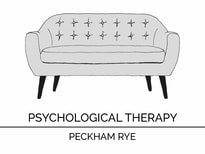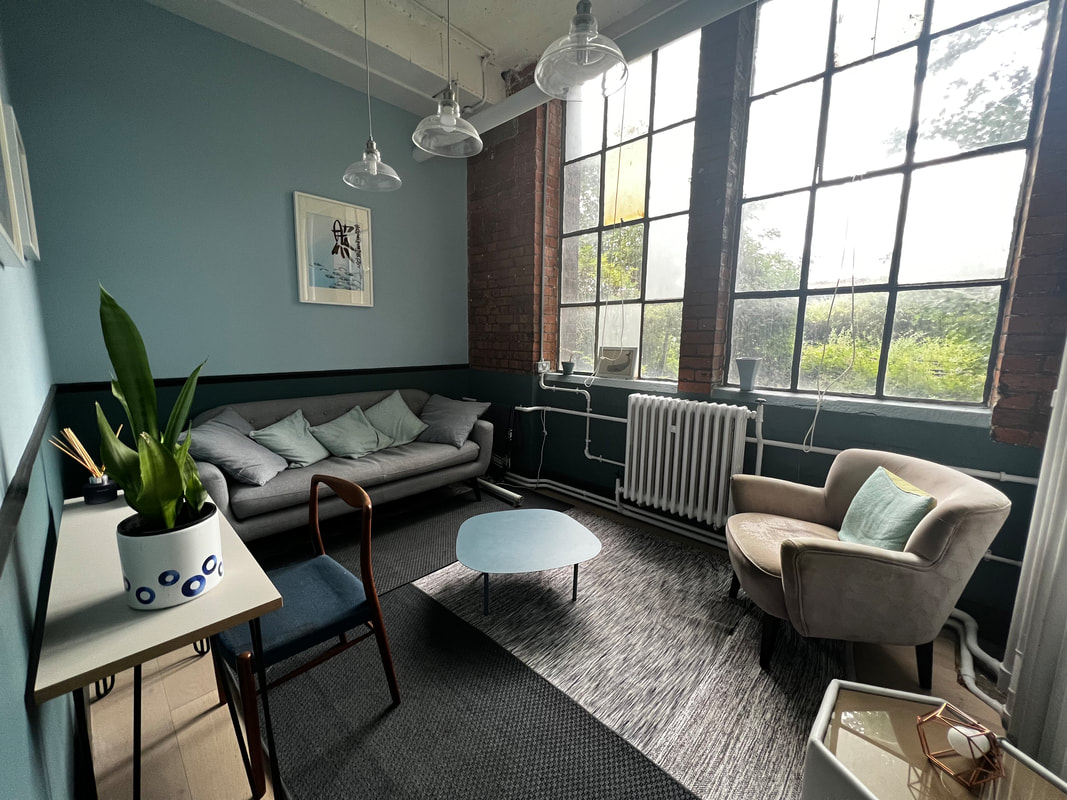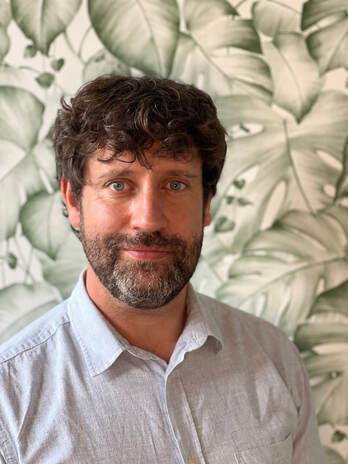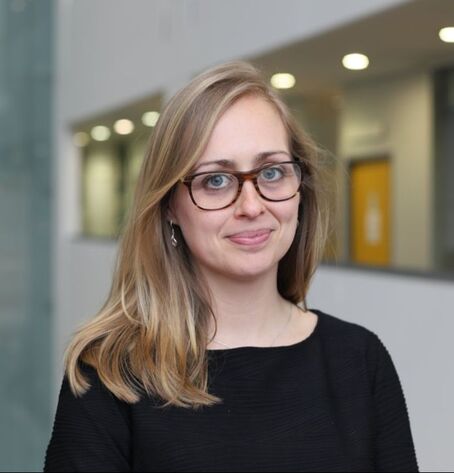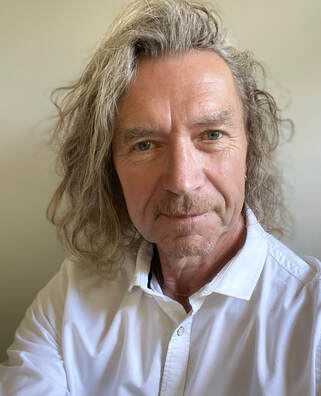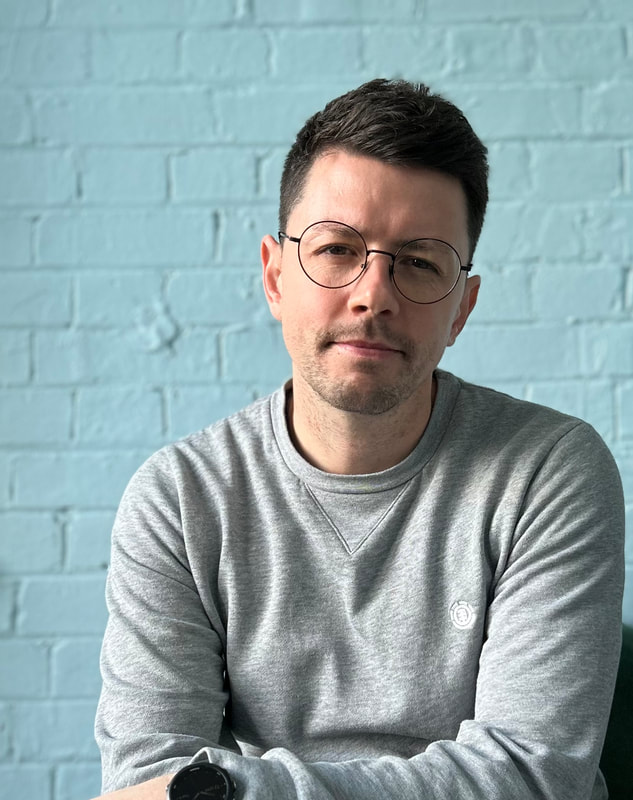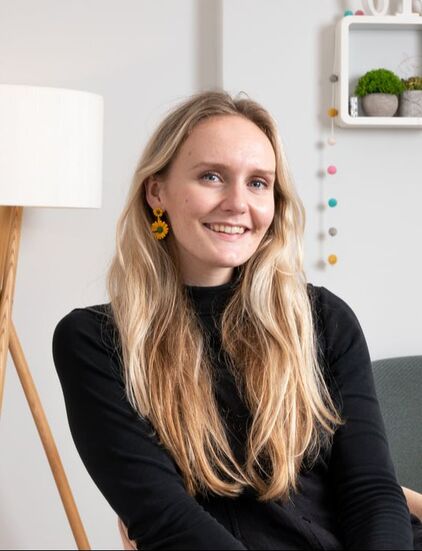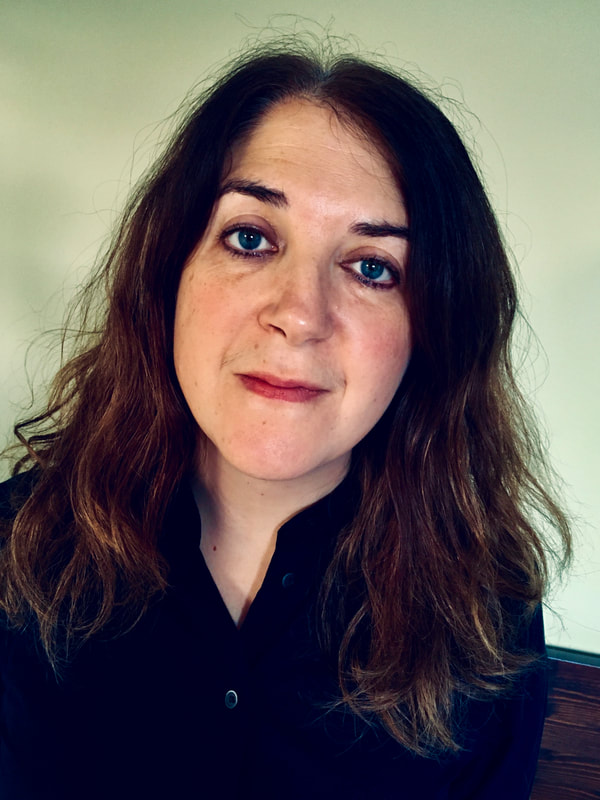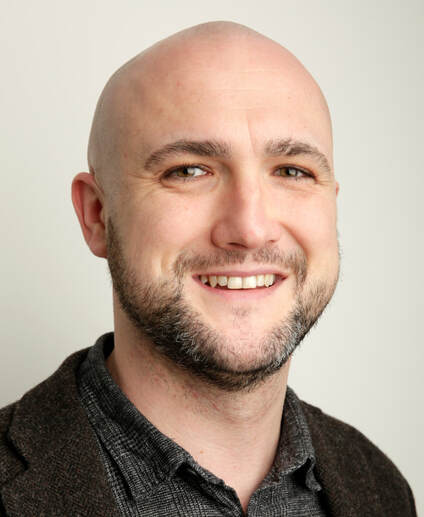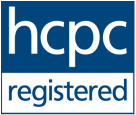The Couch offers the highest quality psychological therapy from carefully selected, experienced and fully accredited clinical psychologists and psychological therapists. We provide evidenced based psychological interventions to individuals, couples, young people and families of all ages and all backgrounds. We help people explore the most sensitive of issues in the safety and security of a compassionate, comfortable and confidential space.
We cover Peckham, Nunhead, Dulwich, East Dulwich, Camberwell, Forest Hill, Sydenham, Bermondsey, South East London, Southwark.
We cover Peckham, Nunhead, Dulwich, East Dulwich, Camberwell, Forest Hill, Sydenham, Bermondsey, South East London, Southwark.
Psychological Therapy at The Couch
At The Couch we can help with the full range of psychological problems, including anxiety, relationship problems, stress, depression, anger, sexual issues, eating disorders, OCD, phobias, PTSD, trauma, abuse, work difficulties, alcoholism, drug addiction, sexual addiction, emotional crises, and bereavements.
We also offer psychological interventions that go beyond working with distress to promote positive psychology by building emotional resilience, improving self-esteem, encouraging self-awareness and building confidence.
We take an integrated approach to therapy combining the most evidenced based practices from CBT (including ACT, CFT, DBT, mindfulness), psychodynamic and systemic approaches, to design interventions bespoke to your needs.
We also offer psychological interventions that go beyond working with distress to promote positive psychology by building emotional resilience, improving self-esteem, encouraging self-awareness and building confidence.
We take an integrated approach to therapy combining the most evidenced based practices from CBT (including ACT, CFT, DBT, mindfulness), psychodynamic and systemic approaches, to design interventions bespoke to your needs.
Meet the Psychological Therapists
Dr Luke Sullivan - Lead Psychologist and Clinical DirectorHCPC Registered Clinical Psychologist and Chartered Psychologist (BSc, MSc, DClinPsy, CPsychol AFBPsS)
I offer psychological therapy to individuals, families and groups of people of all ages either through short-term focused interventions or longer term psychotherapy. I also support personal development, help enrich personal lives and guide people toward realising their potential. I create highly effective bespoke psychological interventions tailored to each individual need...... (read more) Cost per 50 min session - £130 individuals; £170 couples/families |
Dr Claire Mason - Clinical PsychologistI am a Health and Care Professionals (HCPC) registered Counselling Psychologist (BSc and DCounsPsych) with extensive experience working across various mental health settings within the NHS and charity sector. My approach as a Counselling psychologist is to focus on you as an individual and to find a way of working together that best suits your needs. I have trained in various evidence-based modalities in particular as a psychodynamic practitioner, however I also have experience in Cognitive Behavioural Therapy (CBT), systemic and narrative approaches, mindfulness, and Cognitive Analytic Therapy (CAT).....(read more)
Cost per 50 min session: £100 |
Charles Ranson - Psychodynamic PsychotherapistI am a fully qualified psychotherapist and registered member of BACP. I work with clients who may be experiencing issues such as stress, anxiety, depression or trauma, as a result of which they are having difficulty making sense of their lives. Working in a psychodynamic way, either on a short or long-term basis, I aim to help them achieve greater awareness and a better understanding of the way in which their past may be impacting on their present and indeed their future......(read more)
Cost per 50 min session: £100 |
Dr Lauren Becker - Clinical PsychologistI am a HCPC registered Clinical Psychologist (BPsy, DClinPsy). My aim is to provide an empathic, thoughtful and reflective space in which we can explore, understand and work through old dynamics of being and relating that might be causing you pain and keeping you feeling stuck in life. While I am trained to work in a variety of psychological approaches, I primarily offer psychodynamic psychotherapy and mentalization-based therapy (MBT), on either on a long or short-term basis......(read more)
Cost per session 50 min session: £100 |
Michelle Gorman - Psychodynamic PsychotherapistI am a qualified and experienced LGBTQ+ affirming psychodynamic psychotherapist based in south east London. I’m available for both online and face to face sessions for individual adults. The focus of my practice is providing safe space and consideration of you, your relationships and your experiences in order to facilitate a greater understanding and acceptance of self.
Psychodynamic therapy places an emphasis on exploring how past and present experiences and feelings shape the unconscious mind, which in turn impact our conscious thoughts and feelings about ourselves and the world day to day......(read more) Cost per session 50 min session: £80 per session, £65 concession rate, £55 initial session |
Dr Martha Werthern - Clinical PsychologistI am a Health and Care Professionals (HCPC) registered Clinical Psychologist offering either short or
longer-term psychological therapies to adults (18+). As a Clinical Psychologist, I draw on various therapeutic approaches, combining a range of therapeutic thought and practice. I have previously worked across various mental health settings.....(read more) I currently offer in person session on Friday mornings. Cost per session 50 min session: £100 |
Dr Joe Kavanagh - Forensic / Practitioner PsychologistI am a HCPC registered Forensic Psychologist (BSc, MSc, DForenPsy) with over 8 years experience working in specialist mental health settings within the NHS. My approach is broadly integrative, drawing on several evidence-based models of therapy including Cognitive Behavioural Therapy (CBT), Compassion Focussed Therapy (CFT) and Acceptance and Commitment Therapy (ACT). I am also trained in delivering Eye Movement Desensitisation Reprocessing (EMDR) therapy.....(read more)
I currently offer sessions in person on Tuesday mornings. Cost per session 50 min session: £100 individual |
Ellie Parkins - Integrative PsychotherapistI am a qualified integrative psychotherapist based in South East London. Psychotherapy offers different things to different people, but ultimately, it is an opportunity to understand yourself and others, overcome challenges, and find meaning in a conflicted world. My approach is relational and integrative. This means I am interested in developing a therapeutic relationship with clients that facilitates trust and understanding, whilst leaning into a selection of approaches that offer meaning, tangible, tailored support.....(read more)
I am available on Friday afternoons Cost per 50min session: £50 initial assessment session - £65 for ongoing sessions |
Mayessi Svoronou - Psychodynamic / Analytic PsychotherapistI am an experienced psychodynamic and psychoanalytic psychotherapist seeing individual adults online and in person (South East and Central London), practicing both in Greek and in English. I have worked in several organisational settings, including the NHS primary and secondary care. Also, I have lectured in several clinical educational institutions in London on aspects of psychopathology and psychoanalytic theory.....(read more)
I am available on Monday evenings Cost per 50 min session; £100 individuals |
Erika Velcokova - Child and Adolescent PsychotherapistI am a child and adolescent psychotherapist. Over the last 7 years I’ve worked with children, adolescents and their families offering both short-term and long-term evidence based therapeutic interventions. I support young people who struggle with depression, anxiety, self-harm, gender identity issues, trauma, or neurodevelopmental conditions.....(read more)
I am available for session on Saturday mornings Cost per 50min session; £100 |
Associate Psychological Practitioners
Josie Reeder - Systemic PsychotherapistAre you struggling with your relationships? Is anxiety, depression or stress making life feel very
difficult at the moment? Perhaps you feel that you, or you and your partner/family, need a bit of extra help to get through a difficult patch or address long-standing difficulties in your relationships. I am a London based fully qualified psychotherapist with over 10 years experience of working with families, couples and individuals..... (read more) Cost per session 50 min session - £90 individuals; £115 couples; £135 families |
Dr Simon Riches - Clinical PsychologistI am a HCPC-registered senior clinical psychologist, with many years of experience working in NHS services and mental health settings. I provide psychological assessment and long- and short-term psychological therapy with individuals, couples, and families of all ages. I am a warm, compassionate psychologist who provides a collaborative therapeutic space attuned to clients' values and goals. I have extensive experience......(read more)
I currently offer sessions primarily by video call although in-person sessions can be arranged. My availability is flexible but includes weekdays and weekday evenings. Cost per session 50 min session: £130 individual sessions | £170 for couples and families. |
|
|
The Couch Therapy Rooms
|
We have created a new therapy space which brings a sense of peace and comfort for our clients and practitioners. If you are interested in joining the team or using our therapy spaces you can find our more by clicking the button.
|
What is psychological therapy
There are many different psychological therapies including cognitive behavioural therapy, psychodynamic psychotherapy, psychoanalytic and systemic. We offer a range of therapies tailored to meet your individual requirements.
Therapy was initially developed to relieve distress from psychological problems such as depression and anxiety. Its use is not restricted to working with mental health problems and we help people learn more about themselves, improve relationships, assist in personal development and increase personal awareness.
Clinical Psychologists are trained to deliver the best evidenced based practices as indicated through the science of psychology. We undertake research to understand how the mind works to help unpick some of the problems it can also cause. Our interventions help people to resolve issues in a timely way. We do work with people longer term at the request of our clients.
We also have other therapists working from The Couch but only if they reach our high standards and we are confident in their ability to help effectively.
An overview of recommended evidence based interventions for various disorders can be found at the National Institute for Health and Care Excellence.
Therapy was initially developed to relieve distress from psychological problems such as depression and anxiety. Its use is not restricted to working with mental health problems and we help people learn more about themselves, improve relationships, assist in personal development and increase personal awareness.
Clinical Psychologists are trained to deliver the best evidenced based practices as indicated through the science of psychology. We undertake research to understand how the mind works to help unpick some of the problems it can also cause. Our interventions help people to resolve issues in a timely way. We do work with people longer term at the request of our clients.
We also have other therapists working from The Couch but only if they reach our high standards and we are confident in their ability to help effectively.
An overview of recommended evidence based interventions for various disorders can be found at the National Institute for Health and Care Excellence.
Client Agreement and Therapy Contract
Th client agreement briefly sets out our terms and the way we work. Please have a good read of this before meeting your therapist for the first time. You can find the full client agreement here
Quality therapy you can trust
Clinical psychologists are always trained to doctoral level and it is a legal requirement that they register with the Health and Care Professions Council. The title of clinical psychologist is protected by law which helps people stay safe from unqualified and potentially harmful practitioners.
The titles counsellor and psychotherapist are not protected by law and can be used by people with limited or no qualifications, training and experience. Consequently, finding appropriately qualified and experienced clinicians can be tricky if you're not sure what to look out for. We put together some advice on how to find a psychotherapist below to help you in your search.
Clinical psychologists are leaders in the provision of psychological therapy within the NHS and they often supervise and oversee the work of other psychotherapists. We aim to have practitioners from various psychotherapeutic backgrounds including CBT therapists, counselling psychologists and psychodynamic psychotherapists. Rest assured all of our practitioners' credentials are carefully checked to ensure they meet with our high standards.
The titles counsellor and psychotherapist are not protected by law and can be used by people with limited or no qualifications, training and experience. Consequently, finding appropriately qualified and experienced clinicians can be tricky if you're not sure what to look out for. We put together some advice on how to find a psychotherapist below to help you in your search.
Clinical psychologists are leaders in the provision of psychological therapy within the NHS and they often supervise and oversee the work of other psychotherapists. We aim to have practitioners from various psychotherapeutic backgrounds including CBT therapists, counselling psychologists and psychodynamic psychotherapists. Rest assured all of our practitioners' credentials are carefully checked to ensure they meet with our high standards.
What is a Clinical Psychologist
Clinical psychology is an integration of psychological science, theory and clinical knowledge for the purpose of understanding, preventing and relieving psychological distress whilst promoting well-being and assisting personal development. Clinical psychologists are at the forefront of the delivery of psychological therapy within the NHS and they are trained to the highest doctoral level. The skills and knowledge of clinical psychologists are held in the highest regard.
Clinical psychologists are specialists in delivering evidence based psychological therapy. Formulations developed during assessment guide our decisions as to whether a psychological therapy will be of benefit. Assessment takes on average two sessions and will determine the length and type of intervention required. This could be as short as six to eight sessions or for longer periods of 1 or 2 years depending each persons needs.
Find out more about clinical psychology at the British Psychological Society
To check the registration of clinical psychologists you can visit the Health Professionals Council
Clinical psychologists are specialists in delivering evidence based psychological therapy. Formulations developed during assessment guide our decisions as to whether a psychological therapy will be of benefit. Assessment takes on average two sessions and will determine the length and type of intervention required. This could be as short as six to eight sessions or for longer periods of 1 or 2 years depending each persons needs.
Find out more about clinical psychology at the British Psychological Society
To check the registration of clinical psychologists you can visit the Health Professionals Council
Health Insurance
Our therapists are registered with a number of private health care insurers. It used to be the case that if you wished to use health insurance for therapy sessions you would need to be referred by a psychiatrist. However, most insurers are now happy for you to approach us directly.
Your insurance provider may request that you see your GP before coming to us, but this relatively straightforward and easy. We would recommend that you give your insurer a call first to discuss with them their requirements before you contact us.
Some providers will cover clients for a certain number of sessions, while others will allocate a lump sum. If you are approaching the limit of your current cover it may be possible to obtain a re-authorisation.
If you would like to do this it’s important to discuss this with your insurer well in advance, as the process can take a number of days and may result in a disruptive break in your therapy.
Our standard cancellation and holding fees apply for sessions covered by health insurance. You will be personally responsible for any charges resulting from missed sessions unless your insurance provider states otherwise. For full details please refer to our therapy agreement
Your insurance provider may request that you see your GP before coming to us, but this relatively straightforward and easy. We would recommend that you give your insurer a call first to discuss with them their requirements before you contact us.
Some providers will cover clients for a certain number of sessions, while others will allocate a lump sum. If you are approaching the limit of your current cover it may be possible to obtain a re-authorisation.
If you would like to do this it’s important to discuss this with your insurer well in advance, as the process can take a number of days and may result in a disruptive break in your therapy.
Our standard cancellation and holding fees apply for sessions covered by health insurance. You will be personally responsible for any charges resulting from missed sessions unless your insurance provider states otherwise. For full details please refer to our therapy agreement
How to find a psychologist / psychotherapist
I have often been asked how someone might go about finding a psychotherapist / psychological therapist. Unfortunately, it's not straight forward so we decided to put this information together to help people in their search for appropriately qualified and able clinicians.
There are different levels of training, types of training and regulatory bodies. Training levels can vary significantly and range from:
None - That's right, some practitioners may not have any appropriate qualifications. The industry is unregulated and therefore and many titles are unprotected. Therefore, anyone can call themselves a counsellor or psychotherapist. The only titles protected by law are 'clinical psychologist' or 'counselling psychologist' which are both clinical doctoral training.
Diploma level (5 levels of varying length) - this is often a route into becoming a psychotherapist / counsellor. Diploma levels range from 1-5 with Level 5 is the highest. Level 4 and 5 qualifies for student registration with some accrediting bodies if the course in an accredited course.
Undergraduate degree (BSc/BA - 3 years full time) - this is a foundation degree which allows for student registration with an accrediting body if that course in an accredited course.
Post Graduate Diploma (PGDip - 2 terms) - Often taken after an undergraduate degree or following on from a diploma (level 4/5). Typically shorter than a Master degree (two-terms / 120 credit). Accredited courses should include supervised client contact. This is the minimum level or training we would expect from a practicing clinician.
Masters Degree (MSc/MA - 1 year full time) - An MSc / MA follows on from a undergraduate degree and is often longer than a PGDip. This is the minimum level of training we would expect from a practicing independent clinician. All courses should be registered with an accrediting body (see below). Therapists are likely limited to one therapy approach
Doctoral level training (3+ years full time) - A doctoral qualification in clinical or counselling psychology is the gold standard and represents the highest level of training above and beyond those described below. Courses typically cover more than one approach over the course of a number of years study and clinical placements with a focus on applying psychological theory and evidence in practice. The only legally protected titles in the UK are that of Clinical Psychologists (DClinPsy/DClinPsych) or doctors of counselling psychology (DPsych/DCounsPsy)
(Please note that a Phd is a research degree and not a qualification related to psychological therapy practice. It does however indicate a high level of academic achievement)
There are different levels of training, types of training and regulatory bodies. Training levels can vary significantly and range from:
None - That's right, some practitioners may not have any appropriate qualifications. The industry is unregulated and therefore and many titles are unprotected. Therefore, anyone can call themselves a counsellor or psychotherapist. The only titles protected by law are 'clinical psychologist' or 'counselling psychologist' which are both clinical doctoral training.
Diploma level (5 levels of varying length) - this is often a route into becoming a psychotherapist / counsellor. Diploma levels range from 1-5 with Level 5 is the highest. Level 4 and 5 qualifies for student registration with some accrediting bodies if the course in an accredited course.
Undergraduate degree (BSc/BA - 3 years full time) - this is a foundation degree which allows for student registration with an accrediting body if that course in an accredited course.
Post Graduate Diploma (PGDip - 2 terms) - Often taken after an undergraduate degree or following on from a diploma (level 4/5). Typically shorter than a Master degree (two-terms / 120 credit). Accredited courses should include supervised client contact. This is the minimum level or training we would expect from a practicing clinician.
Masters Degree (MSc/MA - 1 year full time) - An MSc / MA follows on from a undergraduate degree and is often longer than a PGDip. This is the minimum level of training we would expect from a practicing independent clinician. All courses should be registered with an accrediting body (see below). Therapists are likely limited to one therapy approach
Doctoral level training (3+ years full time) - A doctoral qualification in clinical or counselling psychology is the gold standard and represents the highest level of training above and beyond those described below. Courses typically cover more than one approach over the course of a number of years study and clinical placements with a focus on applying psychological theory and evidence in practice. The only legally protected titles in the UK are that of Clinical Psychologists (DClinPsy/DClinPsych) or doctors of counselling psychology (DPsych/DCounsPsy)
(Please note that a Phd is a research degree and not a qualification related to psychological therapy practice. It does however indicate a high level of academic achievement)
Professional bodies
The regulatory body for clinical and counselling psychologists is the HCPC. However, there are also a number of professional bodies for psychological practitioners, counsellors and psychotherapists in the UK who provide some governance. You should check whether your therapist is registered with one of these organisations alongside their level of training. We would not recommended that you see anyone who is not registered with one of the professional bodies below.
Health and Care Professions Council (HCPC)
The HCPC regulate health and care professionals in the UK and were set up to protect the public from unregulated practitioners. They only register professionals who meet their standards for training, professional skills and behaviour. They can take action against health professionals who fall below these standards and can also prosecute those who pretend to be registered.
The titles 'Clinical Psychologist' and 'Counselling Psychologist' are protected by law through the HCPC. Clinical psychologist are always trained to doctoral level (DClinPsy) and Counselling psychologists (DPsych). Doctoral level training would indicate a level of skill and knowledge over and above that of post graduate diploma, undergraduate degree (BSc/BA) or a Masters degree (MSc).
The titles 'Clinical Psychologist' and 'Counselling Psychologist' are protected by law through the HCPC. Clinical psychologist are always trained to doctoral level (DClinPsy) and Counselling psychologists (DPsych). Doctoral level training would indicate a level of skill and knowledge over and above that of post graduate diploma, undergraduate degree (BSc/BA) or a Masters degree (MSc).
The British Psychological Society (BPS)
The BPS is the professional body which provides accreditation for psychology training programmes. The BPS's role is complementary to that of the HCPC. The BPS provides a Directory of Chartered Psychologists. They also provide information to the public and ensure the highest standards of education, training and practice. Chartered status with the BPS is not a requirement for psychologist to practice and all practitioner psychologists must have accreditation with the HCPC.
All clinical psychologists are regulated by the HCPC. The Association of Clinical Psychologists is the representative professional body for clinical psychologists. They seek to promote the profession and its members, explaining the role and competences of clinical psychologists to healthcare managers, commissioners, policy makers and politicians, the general public, and not least, service users.
British Association of Counselling and Psychotherapy (BACP)
The BACP is the professional body for counselling and psychotherapy in the UK. All BACP members must take, or be taking, a core practitioner training course in counselling or psychotherapy. This course can be a minimum of one year full time or two years' part time tuition and include a supervised placement of 100 hours of client work. Once they successfully graduate from their course, they can become an individual member. They then have a maximum of two years to become a registered member which can be done by completing a registered course or by passing a certificate of proficiency.
Accredited status is the highest level of accreditation from the BACP and practitioners must have more experience of therapy (450 or more fully supervised clinical practice hours, of which a third are post qualifying), have been practicing for at least three years and receive a minumum of 1.5hours of supervision for their work per month. Accreditation would be expected for practitioners working from The Couch.
There is currently no doctoral level training for BACP course although people do use this title on their register if they have completed a research doctorate (Phd). A Phd is not a clinical qualification.
The HCPC are the regulator for doctors of counselling psychology who do undertake doctoral level clinical training indicated by the DPsych or DCounsPsy protected title.
Accredited status is the highest level of accreditation from the BACP and practitioners must have more experience of therapy (450 or more fully supervised clinical practice hours, of which a third are post qualifying), have been practicing for at least three years and receive a minumum of 1.5hours of supervision for their work per month. Accreditation would be expected for practitioners working from The Couch.
There is currently no doctoral level training for BACP course although people do use this title on their register if they have completed a research doctorate (Phd). A Phd is not a clinical qualification.
The HCPC are the regulator for doctors of counselling psychology who do undertake doctoral level clinical training indicated by the DPsych or DCounsPsy protected title.
British Association for Behavioural and Cognitive Psychotherapies (BABCP)
The BABCP is a multi-disciplinary interest group for people involved in the practice and theory of behavioural and cognitive psychotherapy. CBT is recommended as a first line intervention for many mental health problems, particularly common mental health difficulties like depression and anxiety. It is one of the many forms of therapy available and has become prominent as it has a good scientific evidence base whilst also being time limited.
The BABCP provides accreditation for CBT therapists and holds a record of trained CBT practitioners. CBT therapists vary in their training and experience. Some may also hold another professional accreditation in mental health nursing and social work. Clinical psychologists often lead on the delivery of CBT within the NHS and some also have BABCP accreditation as an adjunct to their HCPC registration.
You can practice as a CBT therapist from an MSc level. CBT does have its limitations and other psychotherapeutic models can be as beneficial or more suited to exploratory work which incorporates developmental and interpersonal difficulties.
The BABCP provides accreditation for CBT therapists and holds a record of trained CBT practitioners. CBT therapists vary in their training and experience. Some may also hold another professional accreditation in mental health nursing and social work. Clinical psychologists often lead on the delivery of CBT within the NHS and some also have BABCP accreditation as an adjunct to their HCPC registration.
You can practice as a CBT therapist from an MSc level. CBT does have its limitations and other psychotherapeutic models can be as beneficial or more suited to exploratory work which incorporates developmental and interpersonal difficulties.
UK Council for Psychotherapy (UKCP)
The UKCP is the professional body for the education, training and accreditation of psychotherapists and psychotherapeutic counsellors. Their membership includes over 7,800 individual therapists and more than 70 training and accrediting organisations. Training ranges from certificates, diplomas, advanced diplomas and masters of arts of science. There are currently no doctoral level training programmes. You will need to check with the individual member organisations about the level of training required for practitioners to register as this will vary between organisations.
You can practice as a therapist from an MSc level
You can practice as a therapist from an MSc level
British Psychoanalytic Council (BPC)
The BPC is a professional association and voluntary regulator of the psychoanalytic psychotherapy profession, publishing a register of practitioners who are required to follow their ethical code and meet their fitness to practise standards. The BPC is composed of 14 member institutes, and register organisation members as 'BPC registrants' where training has been completed.
Training programmes range from certificates, diplomas, advanced diplomas and masters of arts of science. There are currently no doctoral level training programmes. You can check registered practitioners individual training and the organisation they trained at the BPC website. The degree of skills and knowledge will vary between individuals.
You can practice as a therapist with a PGDip or MSc
Training programmes range from certificates, diplomas, advanced diplomas and masters of arts of science. There are currently no doctoral level training programmes. You can check registered practitioners individual training and the organisation they trained at the BPC website. The degree of skills and knowledge will vary between individuals.
You can practice as a therapist with a PGDip or MSc
Private psychological therapy, psychotherapy and counselling covering Peckham, Nunhead, Dulwich, East Dulwich, Camberwell, Forest Hill, Sydenham, Bermondsey, South East London, Southwark.
